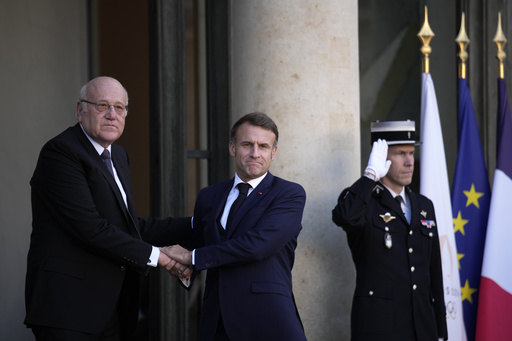
On Thursday, France convened an international conference aimed at mobilizing both military and humanitarian assistance for Lebanon, a nation currently embroiled in conflict between Hezbollah militants and Israel. This ongoing war has resulted in the displacement of approximately one million people, claimed more than 2,500 lives, and exacerbated the country’s already dire economic situation.
The gathering in Paris is not only focused on immediate aid but also on bolstering Lebanon’s sovereignty and reinforcing its institutions. Lebanon has been politically stagnant, lacking a president for two years due to ongoing disagreements among various political factions. Hezbollah operates almost autonomously, effectively creating a “state within a state,” complicating the country’s governance.
Despite challenges, France’s historical ties as a former colonial ruler and its active diplomatic relationships lend credibility to its efforts in addressing the severe humanitarian crisis. According to Middle East specialist Rym Montaz, who serves as editor in chief of Strategic Europe, France is positioned to coordinate an effective international response to the significant challenges posed by the conflict.
Montaz emphasized that the French government is committed to ensuring that international donors receive direct accounts from local actors on the ground, who can articulate Lebanon’s urgent needs following the recent hostilities. Notably, Israel’s military actions over the past month, including extensive aerial bombardments and ground assaults targeting Hezbollah, have significantly impacted civilian life, with strikes occurring across various regions, including Beirut.
The International Organization for Migration estimates that around 800,000 individuals have been displaced, many of whom are now residing in overcrowded shelters, while others have crossed into Syria seeking refuge. The Lebanese government, already strained by financial difficulties, struggles to respond to these escalating challenges, with numerous hospitals being forced to evacuate due to airstrike threats.
In recent statements, President Macron has adopted a more assertive position against Israel, calling for a ceasefire in both Lebanon and Gaza, highlighting the “unbearable human toll” of the conflict. Macron reiterated this message during a phone conversation with Israeli Prime Minister Benjamin Netanyahu earlier this week. Tensions between these leaders have been rising, particularly following Macron’s call to halt arms exports used in Gaza.
Additionally, Macron has vocally condemned Israel for the “deliberate” targeting of U.N. peacekeepers in southern Lebanon, a claim that Israel has denied. The conference is set to host over 70 representatives from countries and international organizations, including the European Union and regional partners. Acting Lebanese Prime Minister Najib Mikati, who met with Macron on Wednesday, is also expected to participate.
The organizers of the conference hope to secure financial commitments from attendee nations that would meet the U.N.’s urgent appeal for $426 million needed for humanitarian relief in Lebanon. France also plans to coordinate international support to enhance Lebanon’s military capabilities, aiming for a more effective deployment in southern regions as part of a potential peace agreement. This arrangement could pave the way for Hezbollah’s withdrawal from border areas.
International assistance might involve providing equipment, training, and financial resources to strengthen the Lebanese armed forces, which have faced significant hardships due to the extended economic crisis. The army, consisting of around 80,000 personnel, is notably outmatched by Hezbollah, which boasts over 100,000 fighters and an advanced arsenal supported by Iran.
Moreover, discussions will also cover how to reinforce the United Nations’ peacekeeping mission, UNIFIL, with possible proposals to enhance its operational role. Around one-third of UNIFIL’s troops are contributed by France and other European nations. Montaz stresses the necessity of bolstering both the Lebanese armed forces and UNIFIL for any prospect of achieving sustainable peace and stability along the border with Israel, underscoring the importance of the French-led initiatives.
